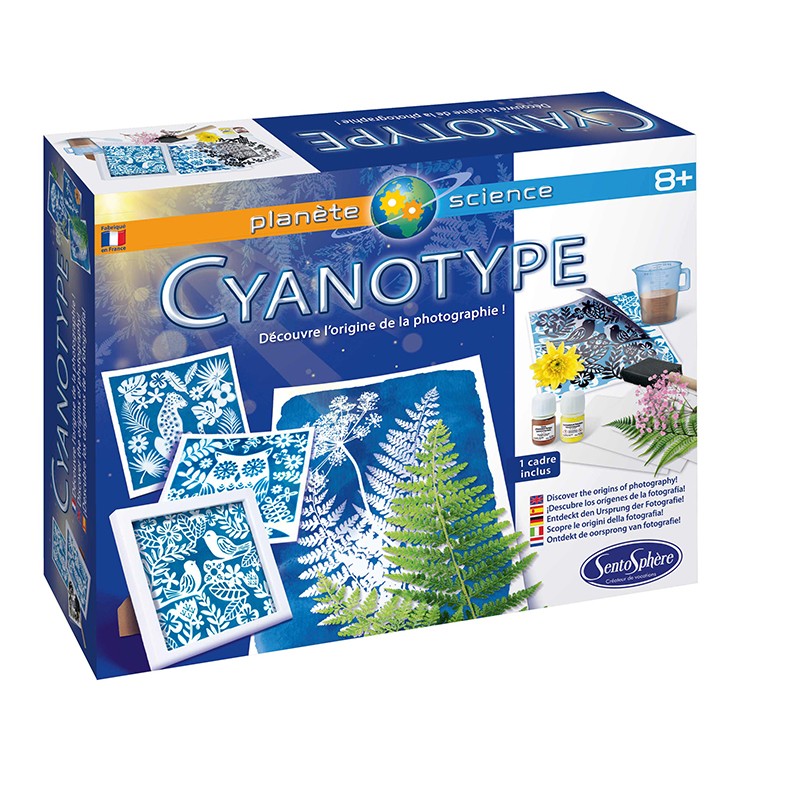


-
Out-of-Stock
-
Coup de



With this scientific kit, discover the Cyanotype technique, this ancestral art of monochrome photography!
Discover the Cyanotype technique, with our scientific box, the ancestral art of monochromatic photography! This photographic process is carried out with a mixture which reacts to light and makes exposed areas appear in a Prussian blue colour. You can use the adhesive covers provided for your creations, or create pretty paintings with dried flowers and leaves. 2 frames provided will allow you to display the most beautiful of your creations!
Cyanotype is a photographic process which produces photo prints or images of a dark blue colour nicknamed Prussian blue. This process takes its name from the Greek "kyanos" which means "dark blue", in reference to the characteristics of this colour. The technique is related to the effect light has on the following two chemicals when mixed: Ferric Ammonium Citrate and Potassium Ferricyanide. In the presence of light, the mixture oxidizes and will take on a (Prussian) blue colour. This technique was discovered in 1842 by the English astronomer and chemist John Frederick Herschel, during his research on the effects of light. Despite the speed and simplicity of this process, the cyanotype never met with real success, but was used by the botanist Anna Atkins to be able to reproduce tiny plants that were difficult to draw. Her herbarium was entirely made up of cyanotype reproductions of algae: The botanist Anna Atkins is considered to be the first person to publish a book that made use of the Cyanotype technique: Herbarium of Algae. There are only around twenty copies known to exist on earth, each print of which was produced by Anna Atkins herself. Nowadays, the cyanotype is mainly used for artistic and educational purposes, and some contemporary artists create very beautiful pictorial works with it.
• 1 pot of potassium ferrocyanide to make 30 ml solution
• 1 pot of ferric ammonium citrate to make 30 ml solution
• 3 adhesive stencils
• 1 adhesive sheet meant for leaves creations
• 12 sheets of paper
• 1 pipette + 1 beaker
• 1 sponge brush + 2 gloves
• 1 frame
• 1 set of instructions